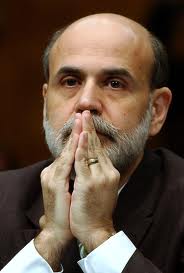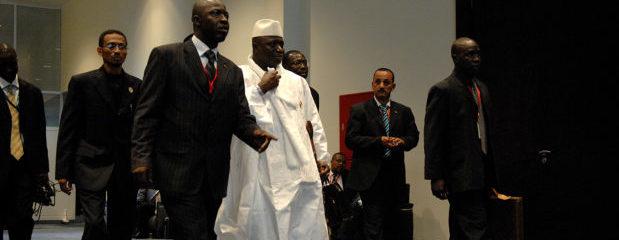Endgame for quantitative easing tests Africa’s emerging markets – From African Energy


Ben Bernanke’ stance on Quantitative Easing could have knock-on negative effects on Africa’s emerging markets.
A shift is under way in the global economy that will test claims that Sub-Saharan Africa (SSA) has emerged from years of structural adjustment with more robust domestic markets and greater resilience to commodity price volatility and capital outflows. The World Bank has suggested that SSA could be approaching the conditions for economic lift-off comparable to China three decades ago. In many countries, the Bank argues, sound fundamentals mean growth is more sustainable than in previous periods, when “˜hot money’ came into frontier economies only to leave again with damaging consequences.
The signs are promising, with SSA issuers continuing to tap the global bond markets. According to the Financial Times, Tanzania will ask the International Monetary Fund to lift its debt ceiling to allow it to launch a maiden $1bn sovereign bond. Meanwhile Mozambique plans to issue what Standard Bank calls “its first de facto benchmark-size US dollar debt” – a sovereign guaranteed, seven-year tenor loan participation note for government fishing agency Empresa Moí§ambicana de Atum. Market appetite for such paper seems strong.
However, five years after the credit crunch, significant challenges loom as the global economy re-engineers itself. Concern is increasing over the impact of winding down the US Federal Reserve’s quantitative easing (QE) programme. Following Fed chairman Ben Bernanke’s announcement in May that the US central bank was looking to begin tapering QE – perhaps as soon as at end-2013 – emerging economies, including South Africa, Brazil, India, Indonesia and Turkey, have been left reeling as so-called “˜hot’ money flooded out of their coffers in anticipation of an expected rise in interest rates.
In its 9 September Emerging Markets Outlook and Strategy report, JP Morgan emphasised that returns for emerging markets assets “will remain in significantly negative territory for the full year”. It recorded $29.6bn of fixed income net outflows since 23 May.
While western economies retrenched following Lehmann Brothers’ collapse, emerging economies enjoyed inflows of foreign capital; many governments let inflation rise and allowed current account deficits to run out of control. Faced with a rapid outflow of capital, emerging markets must now respond to a shortage of external financing and rapid currency devaluation. As financial prices fall, the cost of imports increases, triggering further inflation.
All of this is particularly true in South Africa, where infrastructure development includes a huge renewable energy procurement programme, whose latest phases expect to be financed with cheaper money. But SA is burdened by a large fiscal deficit, a rand that sits uncomfortably at around $1=R10, high levels of unemployment and labour disputes. As capital continues to pour out and inflation continues to rise, financing of major projects may be at risk.
The outlook for many other SSA economies is much less pessimistic. Any adverse conditions are likely to come from reduced levels of trade with developed economies (should their post-QE economies deteriorate). However, with a broad base of primary products and growing domestic demand for higher-end goods and services, Africa’s natural growth potential leaves it in a fairly resilient position.
In recent months, China’s growth has stuttered towards more sustainable levels, putting pressure on commodities-dependent economies. The 2013 downturn is a wake-up call (if another is needed) for African countries to drive on towards greater diversification in their partnerships and product offering. This time round SSA really may be more resilient, as underlined by the huge acceleration of domestic investment in Nigeria, where local conglomerates and banks feature significantly in power privatisation. And the news may be better for those still dependent on commodities exports than for finance ministers in more advanced emerging markets. JP Morgan also commented: “Our 2013 EM growth forecast has been lowered to 4.3%, but growth risks are now biased to the upside as the global manufacturing cycle improves and the outlook for China has stabilized.” This should help to maintain levels of investment that in recent years have finally outstripped aid as the major source of finance to the region.
This is a View article from the African Energy newsletter, a source of independent analysis on the continent’s energy industries produced by Cross-border Information, a business intelligence company with a long established research focus on the politics, energy and financial sector trends of Africa and the Middle East.






